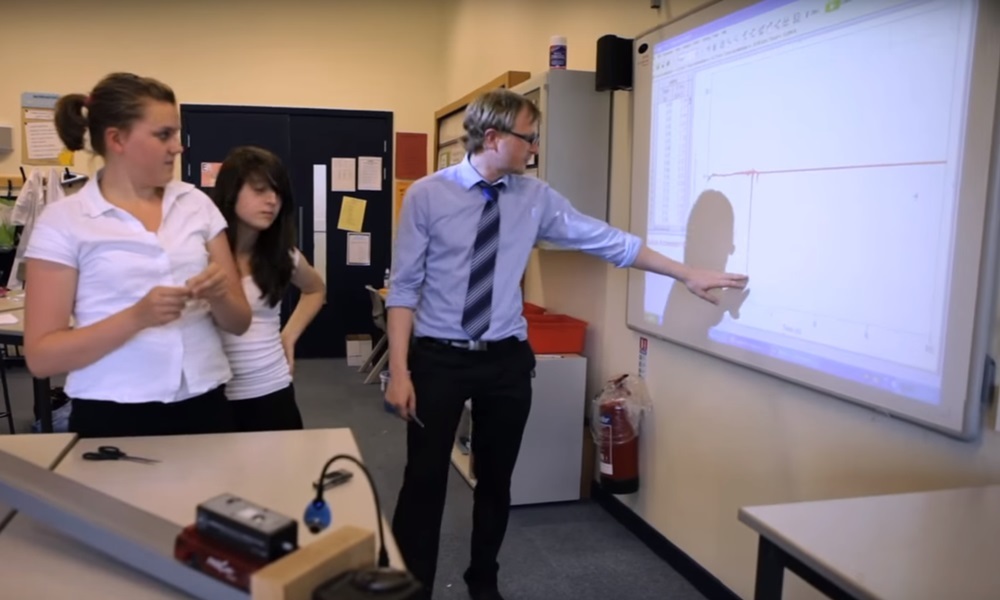Scotland’s new curriculum has lowered academic attainment and widened social inequality but the Scottish Government has failed to acknowledge or remedy the problem, international education analysts have been warned.
Dr Jim Scott, of Dundee University, has told the Organisation for Economic Development (OECD) the new Curriculum for Excellence (CfE) and the associated new National Qualifications (nNQ) have had a negative impact on education in Scotland.
However, he found no evidence that the Scottish Government has acknowledged the problem or taken remedial action.
His researchers interviewed 60 council and school personnel involved in education governance, visited 64 secondary schools and analysed 15 years of attainment data stretching back to the earliest days of devolution.
He found level three-five enrolment has dropped by 17% and attainment has dropped by 24% since their introduction.
Implementation has been inconsistent across different schools and council areas, meaning pupils’ attainment “varies significantly” depending on where they study and they encounter difficulties if they move schools, he said.
The least able pupils have suffered the greatest loss in enrolment and attainment, exacerbating Scotland’s existing problems with educational inequality, he added.
Dr Scott’s paper, The Governance of Curriculum for Excellence in Scottish Secondary Schools: Structural Divergence, Curricular Distortion and Reduced Attainment Submission, has been submitted to OECD’s CfE team.
He said the negative effects were the result of often “weak or unsatisfactory governance” within “the national layer of politico-educational governance”.
https://youtube.com/watch?v=SG1sFJTD8SM%3Frel%3D0
Councils have taken a disjointed approach to implementation and “lack the capacity to generate significant improvement from their own personnel and resources”, he said.
“Differing curricular structures mean that, as learners progress from S4 to S5 to S6, their overall attainment potential varies significantly, depending on the school/authority in which they learn,” he said.
“The challenge for learners moving from council area to council area, or even school to school, during their middle secondary career is much greater than before CfE.
“The reductions in enrolment and attainment have impacted differentially across the ability range, with the least able suffering significantly greater losses in enrolment and attainment.
“This compounds Scotland’s existing problems of social justice and equality of opportunity.”
Dr Scott a former headteacher at Perth High School said the emphasis on teachers as agents of change has “exposed the current paucity of curriculum theory” and “led to a lack of capacity to deal with the issues”.
He added: “There is no identifiable evidence of governmental acknowledgement of the problem or of remedial action.”
Labour opportunity spokesman Iain Gray said: “After a decade of the SNP Government in charge of our schools we are seeing Scottish education narrowing, attainment falling and some subjects are at risk of disappearing altogether.
“We warned the SNP about these problems months ago and they dismissed our evidence. Today we see that those trends have continued into the second year of the new exams.
“Nicola Sturgeon said education was her number one priority as First Minister, but after more than a year in the job we are seeing the attainment gap widening and the breadth of subjects our students are successful at narrowing.
“The First Minister can announce frameworks and testing all she likes but the reality is that we won’t close the attainment gap without the proper resources.”
A Scottish Government spokesman said: “A record proportion of school leavers are securing jobs, training or continued education, while the gap between our most and least deprived school leavers achieving at least one Higher has reduced considerably since 2007.
“The figures contained in this report do not fully recognise school leavers’ skills and qualifications, which are a far more important, meaningful measure of performance.
“There was particularly strong progress in attainment in languages with last year’s Higher Language entries up 14% on 2014, and passes up by 15%. Passes at Higher in all languages have increased by 13% from 2007 to 2015.
“Accelerating this progress, in increasing educational achievement and closing the attainment gap, is key to our ambition of creating a fairer Scotland. To this end, we have launched a £100 million Attainment Scotland Fund to provide targeted support to schools and local authorities in the most deprived areas, and introduced attainment advisors in every local authority.
“The new National Improvement Framework will ensure that better information about children’s progress is available to teachers, parents and policy-makers – to support learning and inform on-going work to close the attainment gap. This follows the recent OECD Review report into Scottish education, which was positive about work being led to improve equity and excellence in our schools.”
